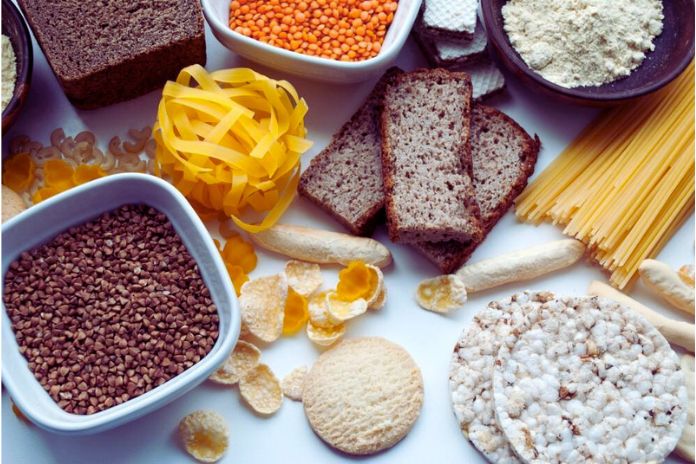Gluten fattening? This question is frequently asked by those seeking weight control and weight loss – and it is a subject that has been much discussed, although never completely resolved. To know the answer to this question, understand: the problem is not what you eat, but – yes – the amount you eat.
It helps to give shape, texture and flexibility to preparations; therefore, gluten-containing foods tend to be very palatable. Do you want to find out once and for all if gluten is fattening? For that, read on!
What Is Gluten
Although cereals are mainly associated with the group of nutrients called carbohydrates, they also contain protein in their composition. In some of these cereals, the main protein is gluten.
As mentioned, gluten is present in wheat, rye, barley and oats – basic and important foods for the general population. In this sense, wheat is highlighted, as it is one of the main food crops in the world, cultivated, consumed and marketed in practically all countries.
What do we mean by that? Gluten is not a creation of the industry, as is the case with trans fats, for example. Therefore, he cannot be seen as a villain. However, some people have celiac disease or gluten sensitivity, and you will learn more in the next topics!
Gluten Related Issues
Celiac Disease
Celiac disease, also called gluten-sensitive enteropathy, is permanent and occurs when the body does not produce an enzyme that breaks down the protein. Therefore, consumption is not indicated.
In this case, gluten hurts the defense cells, triggering an inadequate response from the immune system, which starts to attack the body, causing an inflammatory process.
Excess inflammation can damage the villi of the intestine, causing numerous health damages, making it difficult or preventing the body from absorbing nutrients from food.
Although it is a very common disease, the diagnosis, which is made through blood tests and enteroscopy, can take a long time.
To treat, the patient must remove all gluten from the diet, and, in addition, other care must be performed indoors, such as keeping separate utensils, so there is no cross-contamination.
Non-Celiac Gluten Sensitivity (NCGS)
While many people say gluten sensitivity is similar to celiac disease, it has major differences, including milder symptoms, as the body does not trigger an immune response.
Thus, gluten sensitivity is more associated with discomfort and digestive symptoms that impair the patient’s quality of life rather than organic changes in the body itself.
Excess gas, stomach pain, diarrhea and constipation are usually present, and, as these signs also appear in other diseases, sensitivity often ends up not being diagnosed.
If left untreated, gluten sensitivity can develop into celiac disease. Thus, from just a difficulty for the body to accept gluten, the body can no longer digest it.
Treatment for gluten sensitivity consists of removing gluten-containing foods from the diet. But what about the answer to “Does gluten make you fat?” Then you will know once and for all!
Gluten Fattening?
Our tip has already been given: the problem with gaining weight is not what you consume but the amount you consume. So, if the individual is not sensitive to gluten or does not have celiac disease, they can safely consume it, just like any other nutrient.
However, this needs to be done in adequate amounts! What will determine weight gain, or rather the accumulation of body fat, is not any specific type of food or nutrient, but – yes – their amounts in the diet.
Weight gain occurs when the daily calorie limit exceeds the body’s need to maintain baseline metabolism and other routine activities. Understood?
Foods That Do Not Contain Gluten
- Fruits, vegetables and vegetables;
- Red meat, chicken, eggs and fish;
- Legumes, such as beans, lentils and peas;
- oilseeds, including chestnuts, nuts and almonds;
- flours, how psyllium, linseed and chia;
- Tapioca;
- Oils, including coconut oil and olive oil;
- Milk and derivatives, such as yogurt, butter and cheese;
- superfoods in general.
Now you know that gluten is not fattening! The total calories in the diet and not just one nutrient will influence and cause an increase in body fat.
Also Read: Physical Exercise And Food: What Is The Importance Of This Relationship?

